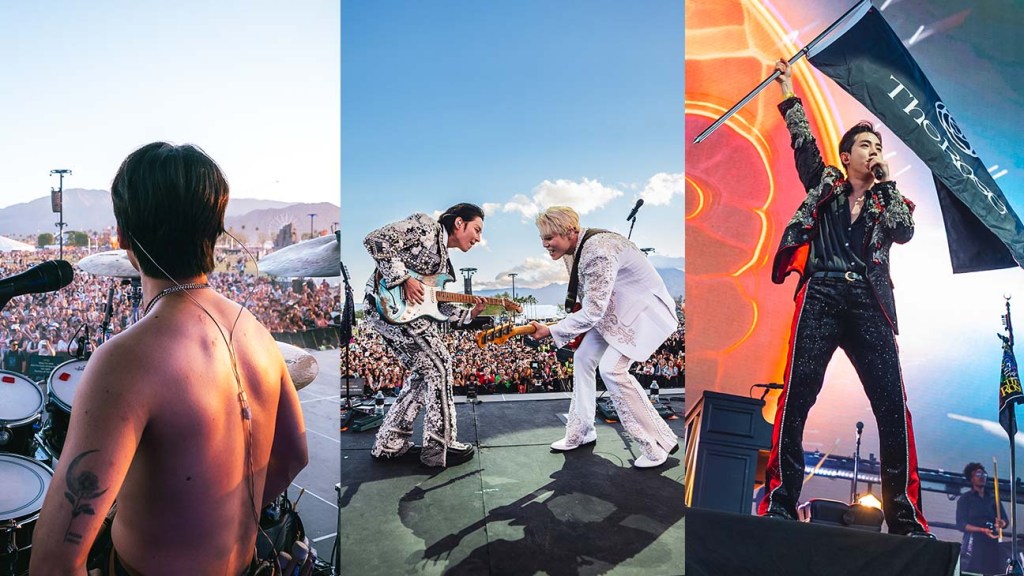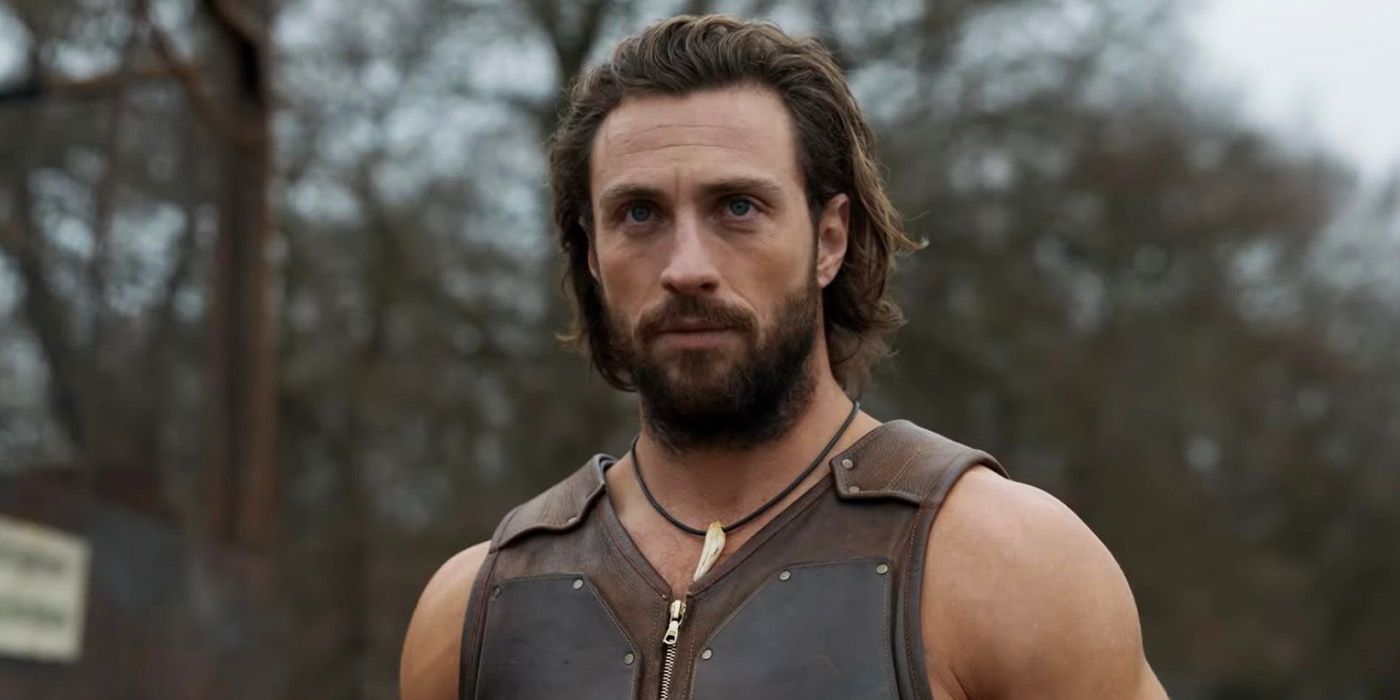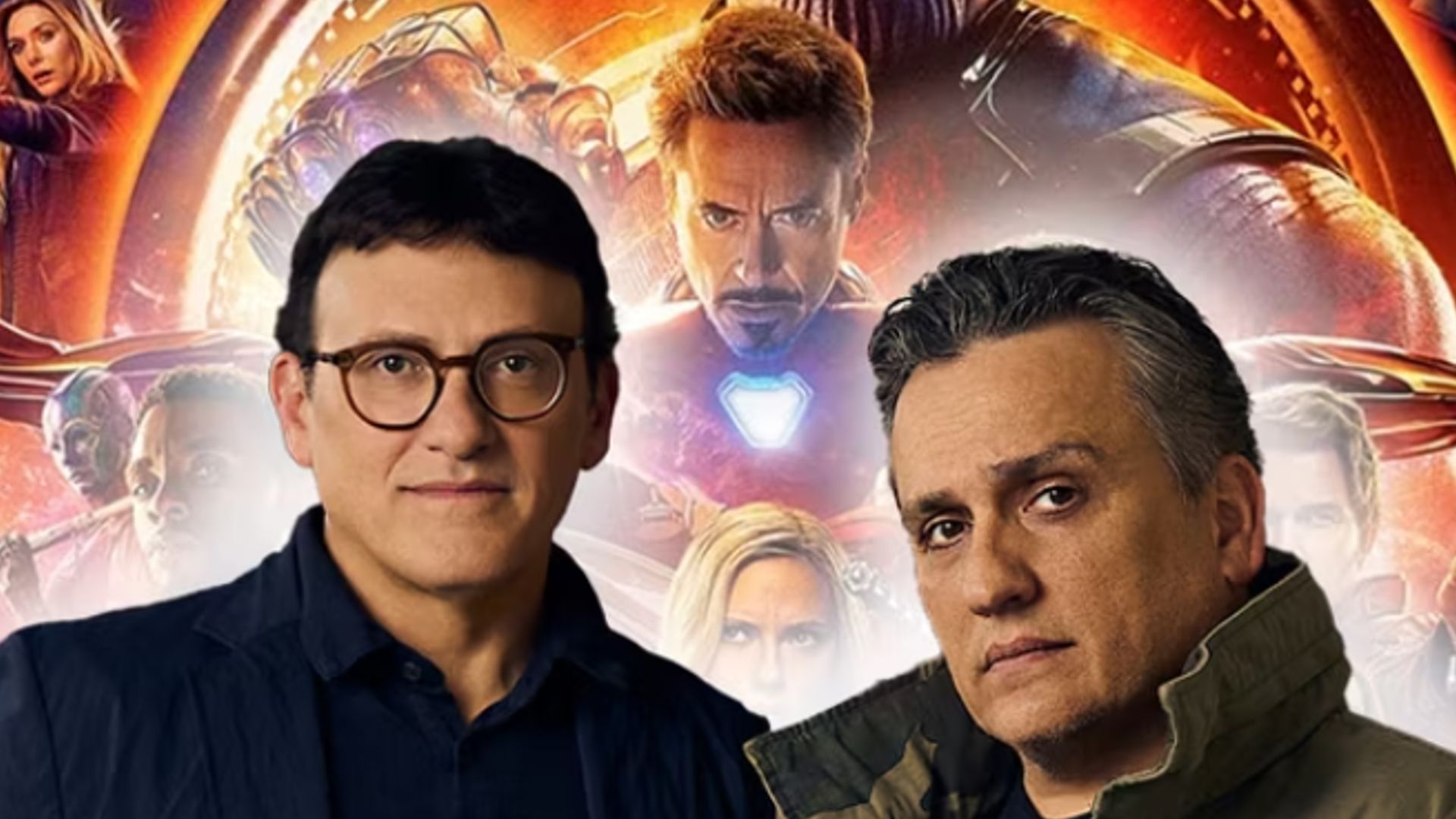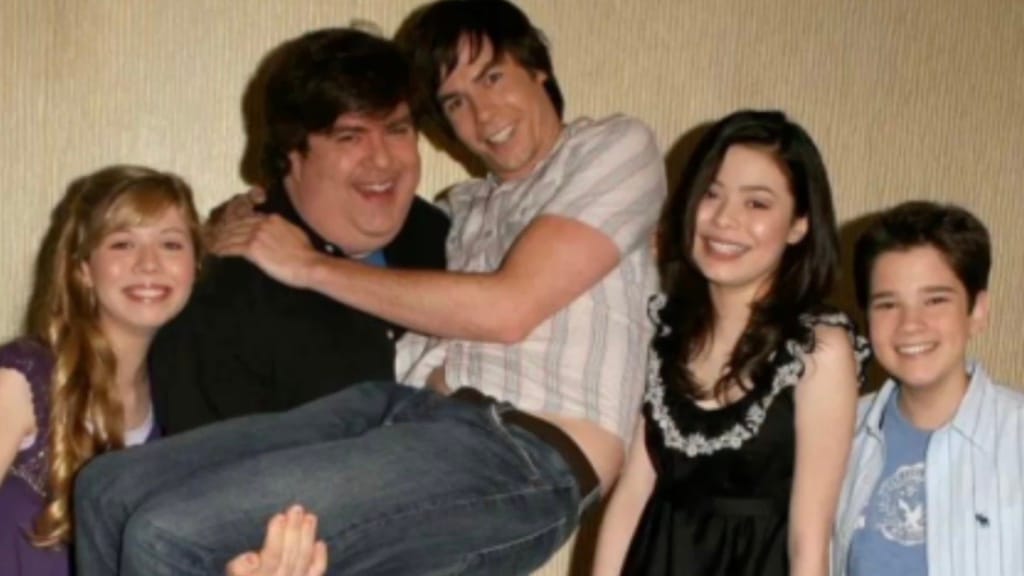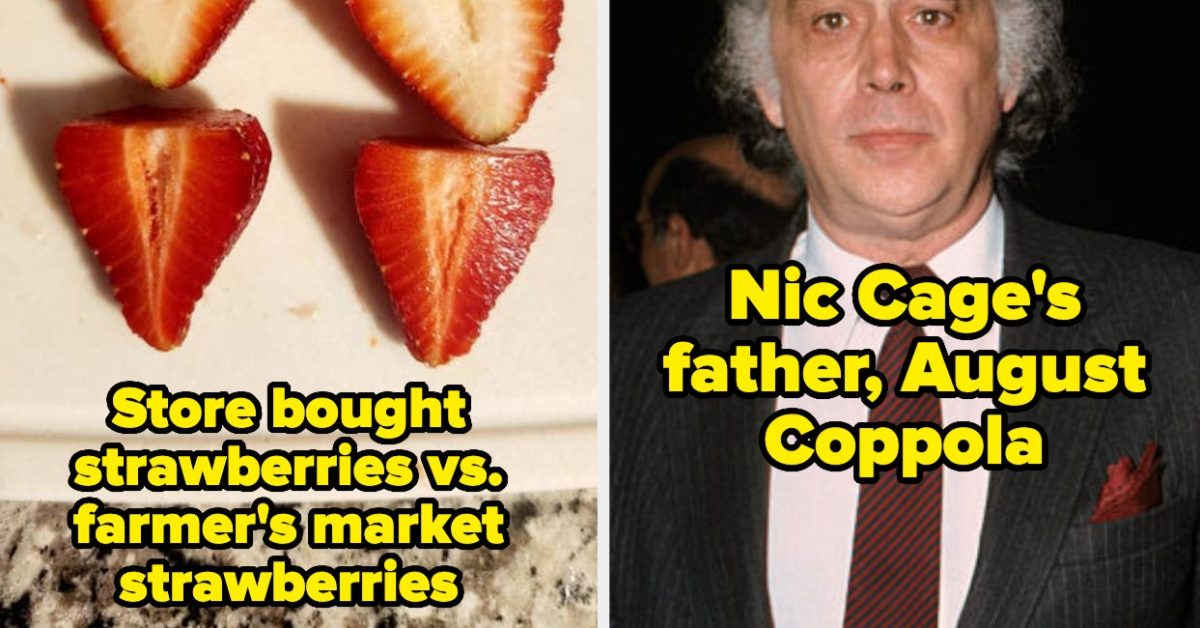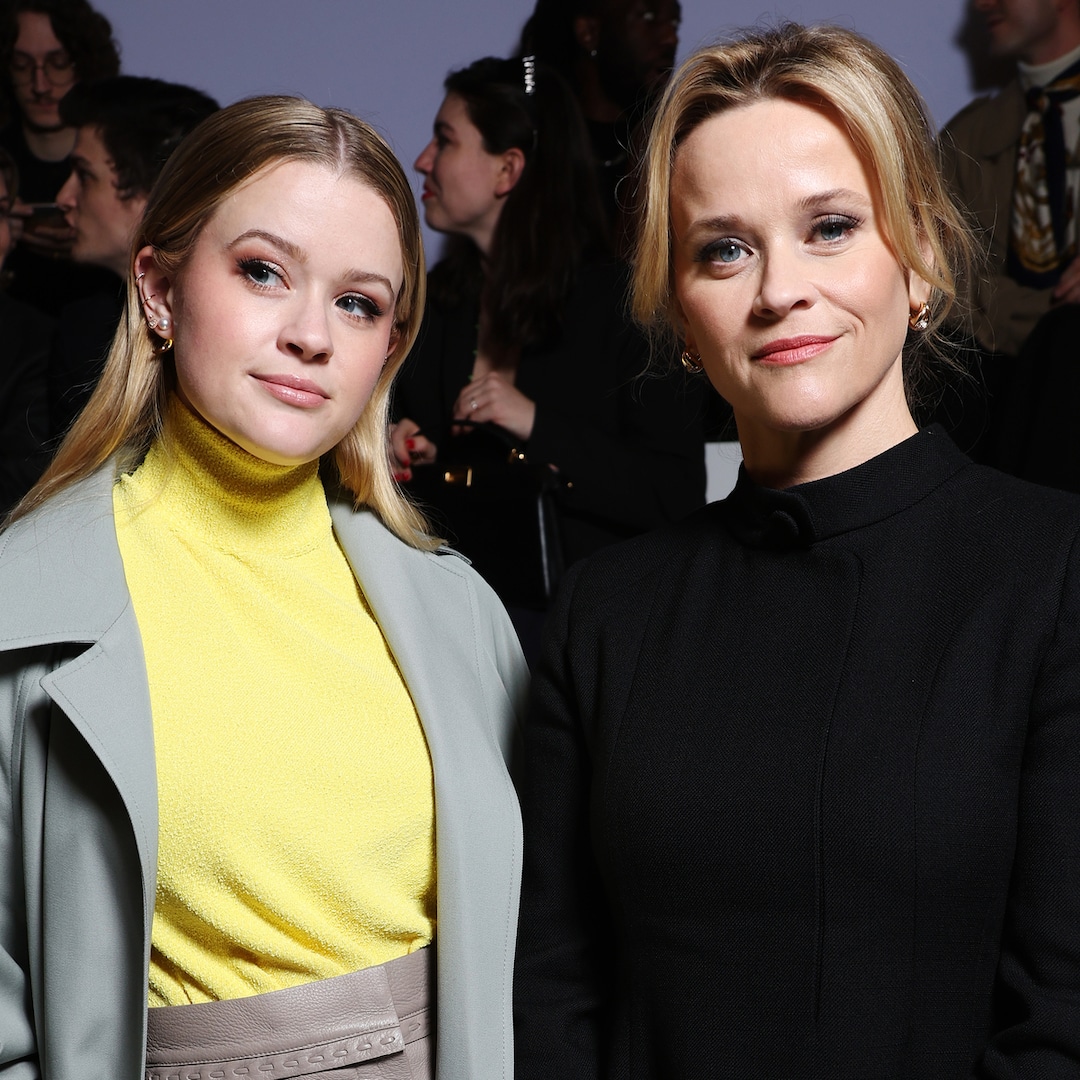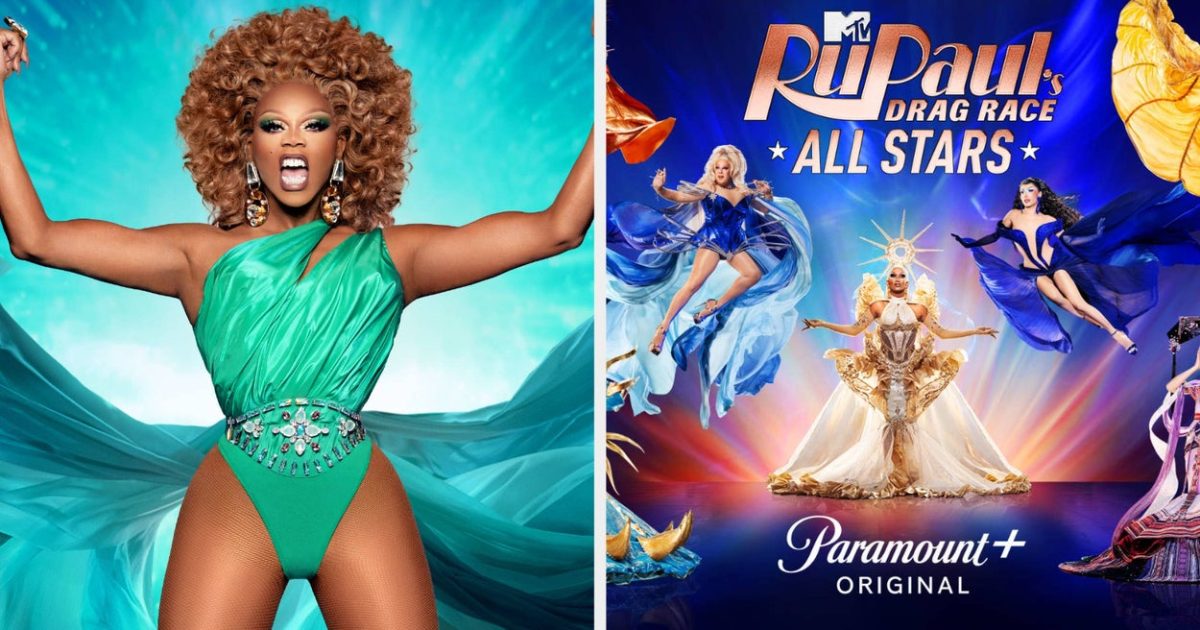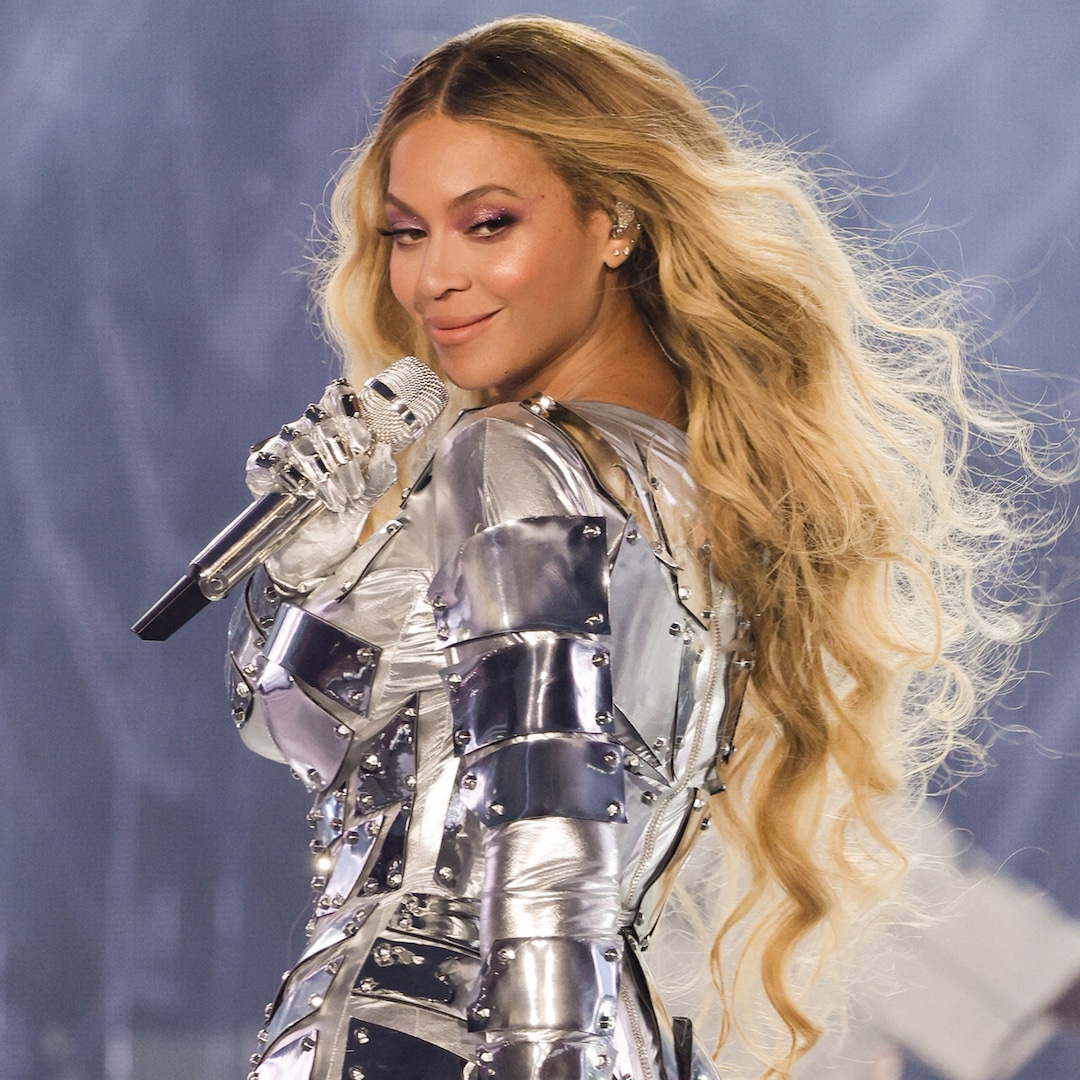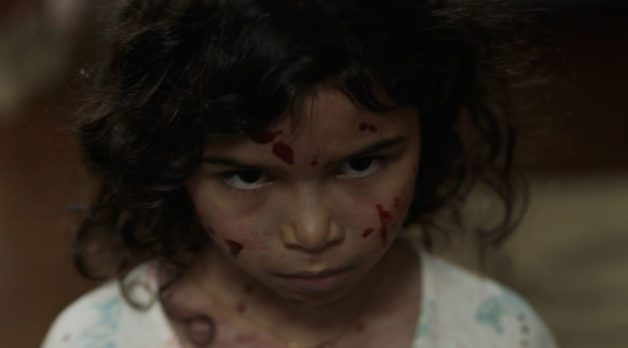
“What ‘Motherhood’ Really Means”: Laura Moss on birth/rebirth
Aug 19, 2023
birth/rebirth, courtesy of Sundance Institute. Photo by Chananun Chotrungroj.
The following interview was originally published during our Sundance 2023 coverage and is being republished today ahead of birth/rebirth hitting theaters via IFC Films and Shudder this weekend. — Editor
The narrative kernel of birth/rebirth, Laura Moss’s debut feature, was originally planted in the writer-director’s mind 20 years ago. The filmmaker (and former EMT) was creatively stirred after reading Mary Shelley’s Frankenstein and feeling that its interest in unnatural procreation could translate well to an all-female retelling. As the decades passed, Moss began negotiating integral facets of their identity—namely coming out as non-binary and becoming increasingly convinced they would never have children—making the story all the more ripe for retelling.
Finally coming to fruition post-pandemic, birth/rebirth deftly weaves together Moss’s own personal inquiries about “female” reproductive processes and the act of mothering with broader cultural sentiments concerning womanhood. The film follows Dr. Rose Casper (Marin Ireland), a brilliant pathologist lacking in basic social skills. Human connection doesn’t interest her anyway, as she’s developing a highly experimental treatment for reanimating recently-deceased corpses. Part of this process entails Rose mining semen from (oddly clinical) bar bathroom hookups, impregnating herself with it (turkey baster-style) and medically inducing abortion to harvest the highly-valuable embryonic material. When Lila (A.J. Lister), the daughter of a maternity nurse named Celie (Judy Reyes), makes her way down to the morgue, Rose finds the perfect cadaver to serve as her first human test subject (she has, at this point, already successfully revived a pot-bellied pig). When her daughter’s body goes mysteriously missing, Celie tracks it down, arriving at Rose’s apartment, miracuously finding her daughter living and breathing once again. Fully invested in keeping Lila alive by any means necessary, Celie teams up with Rose to further her clandestine research—a union that probes at ideas of motherhood, conception and the human sacrifices that further scientific advancement.
I spoke with Moss a few days after their film’s Sundance premiere, a conversation that spanned the director’s decision to cast Reyes and Ireland, the film’s multi-faceted depiction of birth and how Frankenstein was reanimated anew.
Filmmaker: This project has been in development for a few years—and I’m sure COVID had a hand in halting production—but I’d love for you to lay out the timeline from the film’s conception to its eventual completion.
Moss: I’ve been thinking about the story for 20 years, ever since I read Frankenstein for the first time. I probably submitted the script to labs for the first time in 2014 or 2015. We were rejected multiple times from those labs, then eventually set it up with Cinestate and, at the time, Fangoria. We were trying to get the film made with that company in 2018, but then we split up due to creative differences. Then we were part of Sundance Labs in 2020 with the project, feeling a lot of momentum, like this is the year that the movie’s going to get made. Then COVID happened, so it was delayed. But in 2020 we met Emily Gotto, the executive at Shudder who really championed the film. That’s when the financing came together. In 2020, we locked Marin Ireland to be Rose, our lead, and I think that catapulted the project forward. She’s such an actor’s actor that having her on board got other actors excited about being a part of the film. And as soon as we felt it was safe—and that our COVID budget was not going to hamstring our ability to make the film properly—that’s when we decided to go. The film was shot in August and September of last year.
Filmmaker: You also worked with your long-time script writing partner on this. What was that process like?
Moss: Brendan O’Brien and I have been working together for years now. Generally, the germ of the idea comes from one of us, then we develop it and make it happen together. I wrote the first draft of this script, but it was 60 pages long and pretty much plotless [laughs]. It was just a meditation on the ideas that you see in the movie. Then we outlined the film together and Brendan took a stab at the second draft. That tends to be how we work: his drafts are too long, my drafts are too short. We bat scenes back and forth, and by the end of the process, we don’t even remember who touched what. We’re very much married by the end of it.
Filmmaker: Judy Reyes, who plays Celie, is really inspired casting here. Most will remember her from her tenure as nurse Carla on Scrubs, but she also had a role in Smile last fall. How did you come to cast her?
Moss: I’m a huge fan of Judy’s, and certainly the first time that I became familiar with her was on Scrubs. But in 2011, there was this very beautiful, gritty family drama at Sundance called Gun Hill Road. Judy is the matriarch of that family, and she’s wonderful. And it surprised me, because I tended to know her for more comedic work. But when I saw her blow the screen away in this role, from that moment on whenever we talked about Celie, it fused with the conception of that character as Judy. I always wanted her, and I was terrified when we Zoomed for the first time. I heard she was interested in the role, but I was afraid she would reject it because it was another nurse [laughs]. I was thrilled that she was such a down to earth person, with such insight into the inner dynamics of the character from the moment that we spoke.
Filmmaker: Similarly, Marin Ireland, who plays Rose, is in wonderful form here. She also appears in Eileen, another Sundance premiere, similarly playing a disturbed matriarch. I think that’s a fascinating contrast here. What made her perfect for this role, and how did you develop the two characters’ rapport?
Moss: Marin’s incredible. I’d seen her stage work and was familiar with her for a long time. There was a very short list in my mind of people who could pull off the combination of that humor and vulnerability that Rose needs to have in order not to just be a steely, creepy Dr. Frankenstein. So, Marin was my absolute first choice, and I was really relieved when I brought her name to Shudder. They had already worked with her before and were already in love with her, so it didn’t take any convincing. Everyone was like, “Oh yes, oh my God, Marin!” She was equally a blast to work with, and so smart about the role. She understood the humor and how not to overplay it. I think she really brings a humanity to Rose that the character needs. Hearing Marin speak about the film this week, she said she really learned the contours of Rose when she got on set with Judy. It really was a pleasure to watch them work together. They’re both such powerhouses and both came in with such thought and preparation. They were constantly surprising each other and teaching each other in the process of filming.
Filmmaker: Let’s get into the meat of the film’s narrative, which is essentially a female or femme-forward retelling of Frankenstein. It’s common knowledge that Mary Shelley wrote the novel and effectively created the sci-fi genre in one fell swoop. What’s even more interesting is that, essentially, the book delves into the male desire to create life as women do. You know, womb envy. What about the Frankenstein narrative felt worthy of updating, aside from gender-bending the novel’s principal characters? If we’re not investigating how men wish that they could foster life the way women do, are we interrogating the supposed biological urge that women have to become mothers in the first place?
Moss: I was certainly interrogating that. I’m non-binary, and I think that one of the essential elements of Rose’s struggle is trying to divorce her mind from her body. There’s an ultimate discomfort with the life-giving processes of her body. There was a line in the script (that’s not there anymore) where she’s throwing something in Celie’s face and she says, “I didn’t gestate a fetus like a cow.” It was a very heartbreaking line to cut, actually, because I feel like her disdain for these processes—wanting to create something with her mind and feeling ultimately betrayed by her body—are important aspects of the film. Mary Shelley famously had multiple miscarriages and lost children. I can feel that underneath the male Victor Frankenstein when I read her work. So, it just felt natural to me that we would explore these things. And the script came to fruition in my 30s, when everyone around me was choosing to have kids, deciding they were never going to have kids, finding out they couldn’t have kids or having families in different ways. So, those themes and that discourse just naturally seeped their way into this story.
Filmmaker: Mary Shelley also had an interesting relationship with her mother. She died when Shelley was young, and there’s that famous anecdote about her losing her virginity on her mother’s grave. So I think there are also interesting parallels in the film to that idea of the mother-daughter bond, how it can kind of transcend life and death in that way.
Moss: Yes, and we spoke a lot about these two characters’ mothers. Rose’s mother is actually present in the film, and Celie’s mother is not narratively present. But I think much of what Celie does is a reaction to mothering her childhood and how she herself was raised. We definitely talked about these women existing in the shadows of their mothers—Rose is named for Rosalind Franklin, who was one the scientists who led to the discovery of the DNA double helix, and has kind of been erased from history because she was usurped by these two men, Watson and Crick. So the legacy of women, mothers and inventors was really important to us too.
Filmmaker: Birth/rebirth is full of an exhilarating display of bloody viscera, yet I did notice that there wasn’t a scene that depicted the actual act of a natural vaginal birth. Was there a reason for this creative decision?
Moss: There’s a lot that has been cut from the film, but we did not depict a natural vaginal birth and then cut it from the film. But I think the things that were cut from the film felt more like intellectual ideas than necessary elements to the story. We wanted to represent the very different ways that women, and people who have uteruses, give birth. We have a natural childbirth that occurs in the movie, but it is not foregrounded. There was actually also a stillbirth sequence in the film, but it just didn’t involve our main characters enough and didn’t really propel the story forward. So, even though it was beautifully acted and thematically appropriate, when we got down to the final edit, we realized that it didn’t belong.
Filmmaker: As a woman, the mere idea of becoming pregnant and giving birth freaks me out a lot. I know I won’t ever have children, which is a personal choice that I’ve received a lot of backlash on. In fact, this is one of many facets of my life that make me feel comfortable calling myself a gender non-conforming woman. As a non-binary AFAB person yourself, I’m curious about your own relationship to the idea of pregnancy, birth and the notion of “motherhood.”
Moss: It was very important to me to have people who had given birth be on set, in front of and behind the camera, because I haven’t given birth, and I think it’s increasingly likely that I won’t. I’ve often felt really conflicted about this issue. My mother had four children. She had me at 36 and my youngest brother at 42, so she was [considered] “late,” especially for that time period. She always described this intense biological, primal urge that overtook her in her mid-30s. She needed to have a child. I kept waiting for that to happen to me, and thinking, “Okay, it’s going to happen later.” And the urge never really emerged.
So often for AFAB people, there is that expectation that this is something that you’re going to do or going to want to do, or this is part of what makes you a woman. I think it’s unfair and ridiculous. So many people don’t choose to make that decision, but it’s not often narrativized. I think I made something that I feel like I needed to see at this point in my life. To explore what “motherhood” really means, what are different types of mothers. I know that for me, I really like to mentor, nurture and teach. Some of the most influential figures in my life have been mentors, and I consider them to also be mothers in some way. That’s a huge theme of the movie, and I hope it does reach people who feel like they need to hear it.
Filmmaker: The film also intersects with abortion and stem cell research in a way that will upset all the right people. Have you received any backlash so far? Are you expecting to?
Moss: I will say that I’ve been thrilled that the people we’ve partnered with immediately got it. Medical abortion is part of this film, but it is not an abortion issue film. I have my personal politics, which I’m always happy to discuss, but I didn’t really want to put [abortions] at the forefront of the movie. I think early on when we were trying to get it financed, I was in rooms with a lot of men who were sort of like, “It’s an interesting movie, but do you have to say ‘placenta’ so much?” They were uncomfortable with the subject matter in general. But no, I’ve been happy to say that, I think this film is about many things, but [regarding that issue], it’s mainly about Rose’s battle with her body and negotiating control over her own body.
Filmmaker: Speaking a bit more about the film’s actors and characters, there are phenomenal performances from your young lead as well as a very endearing little pig, Muriel.
Moss: A.J, our girl, is phenomenal. She was a natural. And her mother, Stephanie Lister, was a real ally and asset in terms of developing her character. We didn’t have the benefit of a ton of rehearsal time, but for about six weeks before we shot, Stephanie and I were trading videos back and forth. I would send her some references of a patient with dementia, or of a certain walk. A.J. would try it, then Stephanie and I would talk about what elements we wanted to bring out. I think for A.J., it was all play. It’s fun to be a monster. We tried to make sure that we were always protecting her on set and making it feel like fun. The pig is a diva, she’s fabulous. And very food-motivated, which is how you direct a pig. We had a blast working with her on set, and I will say, it was also really fun to watch the crew melt every time our pig came on set. It turned us all into kids. It’s not the easiest thing to work with an animal, but I think we all found the process to be really charming.
Filmmaker: And how did you go about directing and framing the scene where it becomes a stalemate between the two characters?
Moss: Yes, there’s a scene where our young girl has a pretty violent interaction. We storyboarded every element in advance, so we knew exactly what we were going to be filming and how it would be portrayed. I discussed it at length with A.J.’s mother. There’s also a scene where the child appears on screen with a nude actor, and that was a composite shot. These are things we had to put a lot of time and care into, and budget time-wise on the day of, to make sure that it was all going as smoothly as possible. A.J. was brave as hell, and I think she really got a kick out of it. We worked with A.J.’s mother on the best way to frame everything [to shelter] her, but that child approached it with a lot of glee, actually [laughs].
Publisher: Source link
I’m Pretty Much The Dumbest Guy On Earth So These 22 Absolutely Incredible Pictures Put My Brain In A Blender Immediately After I Saw Them
I'm Pretty Much The Dumbest Guy On Earth So These 22 Absolutely Incredible Pictures Put My Brain In A Blender Immediately After I Saw Them 1. This is what Nicolas Cages' father, August Coppola, looked like: 2. This is how…
Apr 28, 2024
Reese Witherspoon & Daughter Ava’s Resemblance Is Wild in Twinning Pic
Reese Witherspoon Hit the 2024 Golden Globes Red Carpet with a Special Date: her eldest son Deacon PhillippeReese Witherspoon and Ava Philippe walk the line of being impossible to tell apart. In fact, the Legally Blonde star and her 24-year-old…
Apr 28, 2024
RuPaul’s Drag Race All Stars 9 Reveals Cast And New Twist
RuPaul's Drag Race All Stars 9 Reveals Cast And New Twist The RuPaul's Drag Race TV universe stops for no one. Just last week, Nymphia Wind was crowned the winner of Season 16. And days later, Drag Race has announced…
Apr 27, 2024
See What Gifts Beyoncé Sent a 2-Year-Old Fan After Viral TikTok
Tyler Fabregas is surrounded by Beyoncé's sweet embrace. After the 2-year-old went viral for calling the Grammy winner his friend, she proved the feelings were mutual by sending him and his family a loving care package. Alongside a photo of…
Apr 27, 2024
